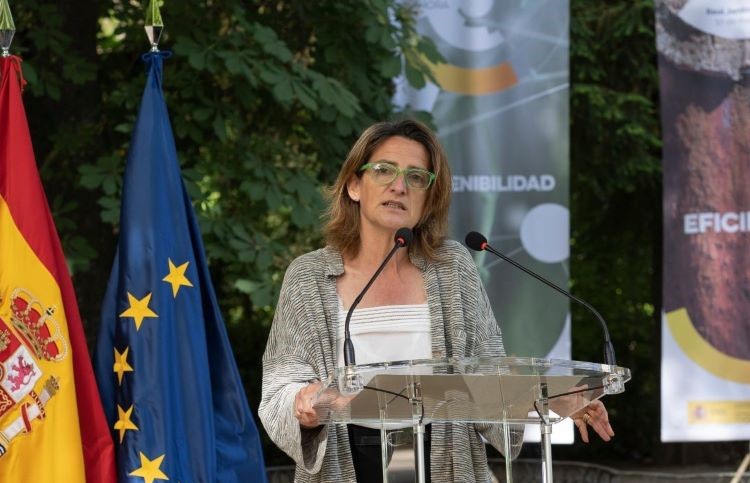The Diplomat
The Federal Executive Commission of the PSOE has decided to propose Teresa Ribera, third vice president and minister for the Ecological Transition and the Demographic Challenge and member of the socialist leadership, as the head of the list for the elections to the European Parliament that will be held on June 9.
The proposal will be incorporated on Friday to the Lists Committee, which will prepare the opinion along with the proposals received from all the federations that the militants were able to vote on until April 20. Finally, there will be a vote in the Federal Committee that will be held this Saturday, the 27th, from which the final list will emerge.
The socialists thus choose a profile that they consider a “leader” in the energy transition in Europe and point out that it is one of the main drivers of the Iberian solution to reduce the price of gas in Spain, as well as the reform of the European electricity market, when Spain He presided over the Council of the European Union, according to a PSOE press release.
In her social network account X, Teresa Ribera wrote: “We want more Europe, more fair and supportive, more social, green and feminist. We know that this is the agenda that guarantees progress and well-being.”
The vice president, who will undoubtedly be elected as a European parliamentarian, could continue in office, at least until November when she should take possession of her seat in the European Parliament.
In the 2019 elections, the head of the Socialists’ list was Josep Borrell, today the EU High Representative for Foreign and Security Policy.
A graduate in Law from the Complutense University of Madrid in 1992, Teresa Ribera also holds a degree in Constitutional Law and Political Science from the Centre for Political and Constitutional Studies in Madrid.
She entered the political arena in 2005 when she was appointed Director of the Spanish Climate Change Office, where she gained some prominence. In 2008 she became Secretary of State for Climate Change until 2011. After that she moved to Paris to head the Institute for Sustainable Development and International Relations, taking a break from politics for a few years.
It was in June 2018 when she returned to the political world after being appointed Minister for Ecological Transition in Pedro Sánchez’s government.
In January 2020, she became the fourth vice-president of Pedro Sánchez’s second government, while continuing to perform her duties as Minister for Ecological Transition.
She was in charge of the de-escalation plan for the COVID-19 pandemic. In July 2023 she was promoted to third vice-president, replacing Yolanda Díaz, who took over as second vice-president. At this time, she resigned her seat as a Member of Parliament to take up full governmental duties.
In any case, in the coming weeks Ribera is expected to put aside her duties as minister to prepare her campaign. And in relation to those who will accompany her on the electoral list, she said: ‘I belong to a party that is enormously respectful of the way in which, from the grassroots, from the groupings, the different candidates are proposed for the electoral lists. We are going to see what happened in this proposal that was to be made by the groups on Saturday.
Ribera also said that, for the PSOE, ‘the European agenda, the construction of a positive project’ involves ‘reinforcing coherence from the point of view of environmental policies and social policies’.
A graduate in Law from the Complutense University of Madrid in 1992, Teresa Ribera also holds a diploma in Constitutional Law and Political Science from the Centre for Political and Constitutional Studies in Madrid.
She entered the political arena in 2005 when she was appointed Director of the Spanish Climate Change Office, where she gained some prominence. In 2008 she became Secretary of State for Climate Change until 2011. After that she moved to Paris to head the Institute for Sustainable Development and International Relations, taking a break from politics for a few years.
It was in June 2018 when she returned to the political world after being appointed Minister for Ecological Transition in Pedro Sánchez’s government.
In January 2020, she became the fourth vice-president of Pedro Sánchez’s second government, while continuing to perform her duties as Minister for Ecological Transition.
She was in charge of the de-escalation plan for the COVID-19 pandemic. In July 2023 she was promoted to third vice-president, replacing Yolanda Díaz, who took over as second vice-president. At this time, she resigned her seat as a Member of Parliament to take up full governmental duties.






